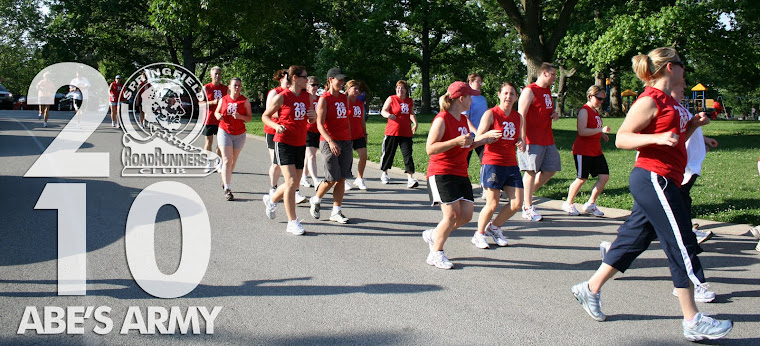I posted this article last year but thought it was worth repeating as it remains one of my favorites.
This is from the second chapter of Jeff Galloway’s Book on Running, “The Five Stages of A Runner.” I was amused to read Jeff’s Galloway's description of each stage as we pass through them.
I will post each stage every couple of days/week.
"I started running when I was 13. I was immediately intoxicated with a beginner’s enthusiasm: the very special thrill of exertion, and a feeling that my body had vast capabilities. Of course, I tried to maximize every jog and thrill on that first run and then had to hobble around for a week, almost too sore to move. But once the soreness diminished I was back out there, running again. I was hooked. As in any skill or craft, there were various stages of involvement, competence and enjoyment. Now that I’ve been running for over 25 years, and have spent a great deal of time helping others weave running into their lives, I see a similar pattern of evolution in just about all runners.
Progress is a matter of learning, maturing and knowing yourself; one stage leads logically to the next. Not everyone has the same aspirations; all runners are not seeking Olympic gold. But understanding the experience common to most veteran runners — though you may not go through all five stages described here — will enable you to minimize the pitfalls and maximize the gains of your running future".
THE BEGINNER Stage One: Making the Break:
Every beginning is precarious. There you are, perched on the edge of starting something entirely new, yet there are distractions, even criticisms, that cause detours and dead ends. You want to be more healthy and fit, but you may not realize how secure you’ve become in an inactive world. Each time you go out for a run you encounter a new side of yourself — one that must somehow be integrated into your daily life.
There is usually a struggle within and without. The old lifestyle is there and offers security. When the energy of “beginning” wears off, it’s harder to motivate yourself to go out for that daily run. You’ll face a lot of obstacles at first. It’s all too easy to stop when the weather turns cold, when it rains or snows, or when you feel the aches and pains of starting. You haven’t had to deal with these things before and the temptation to quit is strong.
Your running may also be threatening to your less active friends. Eventually you — the beginner — and your non-running friends work it out. The transition period, however, can be unstable and uncomfortable for both. If you falter, the old world — comfortable in many ways — is waiting for you to slip back in. If you’re lucky enough to make new friends who share similar fitness goals, you’ll probably find refuge in the “fit” world while you gain your “running security.”
Social reinforcement makes it easier to establish the fitness habit. One good approach is to find a group that meets regularly. Or you can make a pact with a friend who drags you out on bad days and vice versa. Races and fun runs are great opportunities to meet people.
At times, you may not progress as fast as you expected. We Americans are traditionally hyperactive and impatient. When we plant a seed, we not only want it to grow, we want it to become a tree by next week. We want results. When you start, you want to see physical and psychological benefits. But if you push too hard, you can tire yourself out and end up quitting in frustration.
The seed of exercise — if you don’t crush it — will survive periods of moisture and drought. Just when it seems to be drying up, it will spring to life, rejuvenated, and propel you further down the road. Don’t be discouraged, even if you’ve stopped. Tomorrow is another day. Many beginners stop and start again 10 or 15 times before they get the habit established.
Beginners who don’t put pressure on themselves seem to have an easier time staying with it. If you simply walk/jog 30-40 minutes every other day, you’ll find yourself gently swept along in a pattern of relaxation and good feeling. Your workout starts to become a special time for you.As you make progress you find within yourself the strength and security to keep going. At first you’re “just visiting” that special world when you go out for a run. But gradually you begin to change. You get used to the positive relaxed feeling. Your body starts cleaning itself up, establishing muscle tone, circulating blood and oxygen more vigorously. One day you find you’re addicted, and the beginner becomes a jogger.
Subscribe to:
Post Comments (Atom)

No comments:
Post a Comment